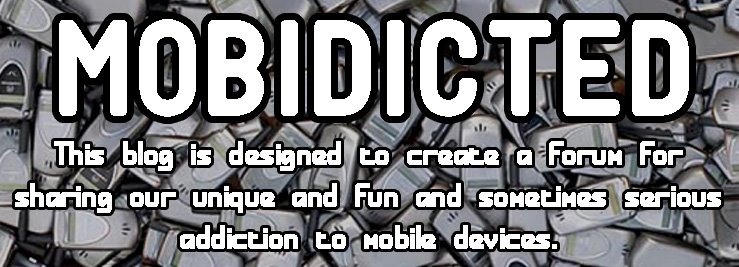Well Google, trendsetters that they are, thought ahead on that one as well. Last week in New York, Google and TMobile debuted the G1, an iPhone-esque device that will be the first mobile to run on Android. It'll hit stores on October 22nd, brimming with unique new apps. Is this is all too much excitement to compute at one time? Let's take a breather and look at the pretty picture while we catch our breath.

Whewwww..... The final piece of mobile news from those Google rapscallions is their continued insistence that there is vacant space on the airwaves of this great nation which could, nay, should be used to improve wireless internet speeds. According to Larry Page, Google cofounder, there are open 'white spaces' between channels on American TV that are effectively dead air and could be channeled toward computers and mobile devices. Page is so gung-ho about it that he's formed the White Spaces Coalition, which includes big hitters like Microsoft, Dell and Intel, all united toward the common purpose of utilizing white spaces. That all sounds great to me: mutual benefit for consumers as well as a love-in for big tech companies. The problem is that the FCC, who has the ultimate say in this, won't give the Coalition rights to use the space. Why? The FCC fears that using empty TV channel space for wireless internet will create interference for TV viewers. They tested a device recently which ultimately failed, but later the results were questioned because the testing device was faulty. These inconclusive tests, coupled with the vehement opposition from the National Association of Broadcasters, mean we'd better not hold our breath on this. Who's in the wrong between the big bad government, big bad tech giants, or big bad TV executives is really a blind guess.
So that's a wrap for today. This has been quite informative, but for those of you who think I failed to deliver on my promise of seedy, gritty stories of MobiDiction, check back later in the week.


No comments:
Post a Comment